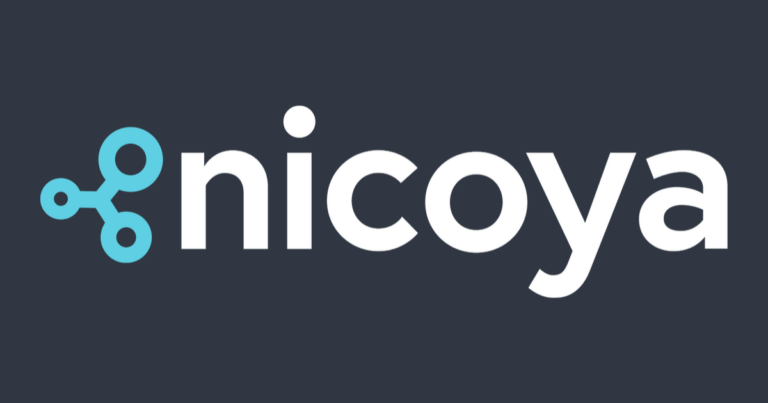GondolaBio’s PORT-77 Receives FDA Orphan Drug and Fast Track Designations for the Treatment of Erythropoietic Protoporphyria (EPP) and X-Linked Protoporphyria (XLP)
CAMBRIDGE, Mass., [Month] [Day], 2025 — GondolaBio, a clinical-stage biopharmaceutical company pioneering novel therapies for patients living with serious and rare genetic diseases, today announced that the United States Food and Drug Administration (FDA) has granted both Orphan Drug Designation and Fast Track Designation to its affiliate, Portal Therapeutics, for PORT-77, an investigational oral, small-molecule inhibitor of ABCG2. The designations were granted for the treatment of Erythropoietic Protoporphyria (EPP) and X-Linked Protoporphyria (XLP), two debilitating inherited metabolic disorders that severely impair patients’ ability to tolerate light exposure.
Addressing a Critical Unmet Need in Protoporphyria
EPP and XLP are rare, lifelong disorders of heme biosynthesis characterized by excessive accumulation of protoporphyrin IX (PPIX) in red blood cells, plasma, and the liver. When exposed to sunlight or certain artificial light sources, individuals with these conditions experience intense phototoxic pain, burning, swelling, and potential liver complications. Even brief light exposure can lead to days of incapacitating pain, forcing many patients to structure their lives around strict avoidance of sunlight.
Despite advances in the understanding of the biochemical underpinnings of EPP and XLP, treatment options remain extremely limited. Existing therapies may offer partial relief but often fail to fully address the dual challenge of phototoxic reactions and progressive hepatic damage caused by chronic PPIX buildup. For many patients, the disease continues to profoundly affect their quality of life, psychological well-being, and ability to participate in everyday activities.
A Novel Therapeutic Mechanism Targeting ABCG2
PORT-77 represents a first-in-class therapeutic candidate designed to target and inhibit ABCG2, a key transporter protein involved in the cellular handling and export of PPIX. By inhibiting ABCG2, PORT-77 has demonstrated a rapid and significant reduction of plasma PPIX concentrations in both preclinical and clinical settings. This reduction holds the potential to mitigate both the cutaneous (skin-related) and hepatobiliary (liver-related) manifestations of EPP and XLP.
In preclinical models and Phase 1 studies conducted in healthy volunteers, PORT-77 achieved meaningful decreases in plasma PPIX levels within hours of administration. Importantly, these studies showed no serious adverse events, with no safety or tolerability concerns identified to date. The compound’s favorable pharmacokinetic profile and oral bioavailability position it as a promising candidate for chronic use in patients suffering from protoporphyria.
Advancing Toward Clinical Proof-of-Concept
GondolaBio and its affiliate Portal Therapeutics plan to advance PORT-77 into further clinical evaluation in patients living with EPP and XLP. Building on encouraging early-phase findings, the company anticipates reporting full Phase 2 clinical data in the near term. The upcoming results are expected to further define the safety, pharmacodynamics, and efficacy of PORT-77 in reducing PPIX levels and improving clinical outcomes related to light tolerance and liver health.
“For individuals living with protoporphyria, avoiding sunlight is a daily struggle that significantly affects their quality of life,” said Neil Kumar, Ph.D., Co-founder and Chief Executive Officer of GondolaBio. “The constant risk of skin and liver damage underscores the urgency of bringing disease-modifying treatments to this population. PORT-77 represents a novel approach designed to directly address the biological root cause of protoporphyria, and we believe it has the potential to make a meaningful difference for patients.”
Dr. Kumar added, “GondolaBio’s unique decentralized structure allows us to pursue innovative therapies for rare and underserved diseases like EPP and XLP. Through these designations, we look forward to working closely with the FDA as we continue to advance this program and accelerate its path toward patients in need.”
Significance of FDA Designations
The FDA’s Orphan Drug Designation (ODD) program is intended to encourage the development of drugs for rare diseases—defined in the United States as conditions affecting fewer than 200,000 people. Orphan Drug Designation provides a range of development incentives, including tax credits for qualified clinical testing, exemption from certain FDA application fees, and seven years of market exclusivity upon regulatory approval. These benefits are designed to help overcome the challenges and high costs typically associated with bringing treatments for rare diseases to market.
Meanwhile, Fast Track Designation is a complementary FDA program that facilitates the development and expedites the review of drugs intended to treat serious or life-threatening conditions where there is an unmet medical need. Therapies granted Fast Track status benefit from more frequent FDA interactions, eligibility for rolling review of a New Drug Application (NDA), and potential access to priority review or accelerated approval if supported by compelling clinical data. Together, these designations underscore the potential significance of PORT-77 as a novel therapy for individuals living with EPP and XLP.
About Erythropoietic and X-Linked Protoporphyria
Erythropoietic Protoporphyria (EPP) and X-Linked Protoporphyria (XLP) are ultra-rare genetic disorders resulting from mutations in enzymes critical to heme biosynthesis—ferrochelatase (FECH) in EPP and ALAS2 in XLP. These mutations lead to excess production and accumulation of PPIX, a photoreactive molecule that causes painful reactions upon exposure to visible light. Symptoms often begin in early childhood, manifesting as severe burning or stinging pain within minutes of sunlight exposure, without visible skin changes. In severe cases, chronic PPIX accumulation can result in progressive liver damage and hepatic failure.
There are currently no approved oral therapies in the United States that directly address the underlying biochemical defect responsible for PPIX accumulation. This leaves a substantial unmet medical need for treatments capable of modifying disease progression and improving patients’ day-to-day quality of life.
About GondolaBio
GondolaBio is a clinical-stage biopharmaceutical company committed to developing transformative therapies for patients with serious and underserved genetic diseases. The company leverages a unique decentralized research model through its network of specialized affiliates, each focused on distinct rare or monogenic disorders. This structure enables GondolaBio to pursue innovative science efficiently, advancing multiple therapeutic programs in parallel while maintaining a patient-centric approach to development.
Through its portfolio companies, including Portal Therapeutics, GondolaBio is advancing a growing pipeline of small molecules and biologics that target the root causes of genetic and metabolic diseases. The company’s mission is to turn cutting-edge molecular insights into meaningful clinical outcomes, improving the lives of patients and families affected by rare conditions worldwide.



